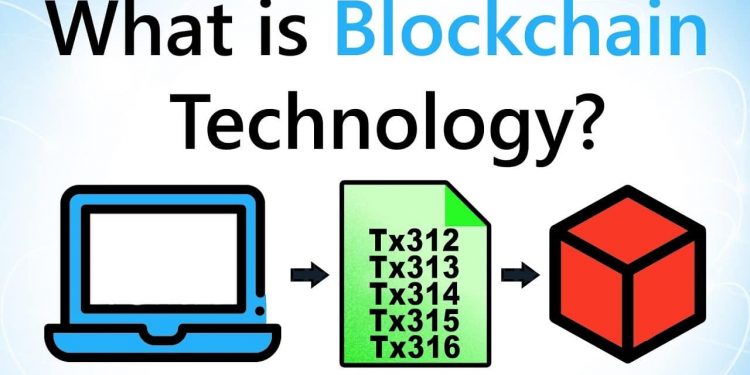All conventional systems (banks, savings banks, ministries, and other state bodies, etc.) use a centralized system when transferring money from one place to another, where information is collected and recorded in one place and all those interested receive it from that one center.
In contrast, behind Bitcoin and other cryptocurrencies is a system called blockchain that’s completely decentralized – there’s no central place or any central server. What makes the difference at blockchain? The way in which transaction information is sent and stored, that is, checked.
What’s a Blockchain?
First the term: Blockchain is a register of all transactions that take place in a system – in this case in the system of Bitcoin and other cryptocurrencies. This is where to follow changes in Bitcoin price.
Blockchain characteristics:
- Transactions are packed into blocks and the blocks are linked into a chain.
- Cryptography is used to connect the blocks, which doesn’t allow changes in the contents of the blocks (so-called HASH function). If the slightest change is made in one place, the content of all blocks changes.
- Users are connected in a peer-to-peer network where each user represents one node of that network.
- In this network, users connect directly with only a few participants, while they are connected indirectly with all others.
- Each user sends information only to users with whom they are directly connected and they send that information to those with whom they are directly connected until the information is passed on to everyone on the network.
- The number of intermediaries in a blockchain can be several thousand.
- Some of the nodes (called full nodes) in the network have a complete blockchain on their hard drive (all transactions that have ever occurred).
- Full nodes constantly communicate with each other and always check if their copy of the blockchain agrees with the others. If they disagree, they automatically update their version to agree with the rest of the network. This is very important for the reliability and security of the system.
- Each user in the chain has its own private key, public key, and Bitcoin (or another cryptocurrency) address.
- The public key is created from the private key (not the other way around).
- A Bitcoin address is created from the public key to which cryptocurrency amounts are received.
- Users sign transactions with their private key from their Bitcoin address associated with that key.
- The private key must be well kept so that hackers don’t discover it.
To make it clearer to you, compare the Bitcoin address with the bank account number, and the private key with the pin of that account. In banks, if you lose a pin, they will give you a new one, but in the blockchain, it won’t happen. It will happen that you lose your bitcoins forever. They still exist but you can’t have them.
How Are Blockchain Transactions Performed?
When you want to send an amount to someone, you first need to enter their Bitcoin address, currency amount, and sign the transaction with your private key. This information is sent to the users with whom you’re directly connected and then they send it to the entire peer-to-peer network in order to eventually reach the recipient.
Checking Transactions
Each node in the blockchain checks and forwards each transaction. There are thousands of these nodes, as we’ve already said, and each of them checks. Only when everyone has checked, the transaction meets the conditions to be inserted into the block and thus become part of the blockchain.
The following things are checked:
- Does the sender have enough Bitcoin on his Bitcoin address?
- Is the recipient’s address valid?
- Are the sender’s private key and signature valid?
The most important for checking transactions are full node hubs. They have a complete blockchain on their servers (all transactions that have ever happened) and they know, at any time, how many Bitcoins there are exactly at which address and whether the addresses and signatures are valid or not. This may seem complicated to you, but blockchain transactions take less than a second.
Skeptics have the most distrust of the security and reliability of the blockchain. What would happen if someone sent the wrong transaction? The answer is that nothing would happen. Why? Because blockchain users are constantly in communication and constantly compare their databases.
Let’s not forget that there are thousands of these users. If a wrong transaction comes from one user, the others will have the correct one. That participant will simply be ignored and misinformation can’t be spread further through the network.
The information above 50% is accepted as correct – the position of the majority is accepted as accurate. One successful attack requires thousands of highly coordinated attacks. Attackers must be in the majority and everyone must send the same wrong information at the same time and at the exact same time when the transaction they want to change occurs. That hasn’t happened to this day.





